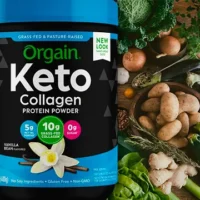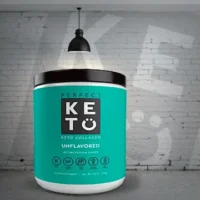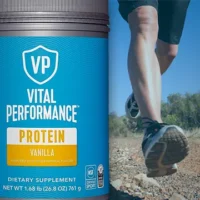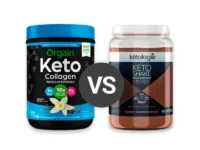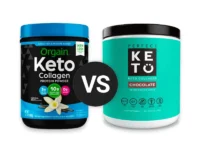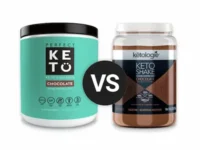Knowledge BaseYou're Questions Answered
BACK
What are collagen peptides?
Collagen peptides, also known as hydrolyzed collagen, are a form of collagen protein that has been broken down into smaller, easily digestible peptides. Collagen is the most abundant protein in the body, providing structure to skin, hair, nails, bones, and connective tissues.
How Are Collagen Peptides Made?
- Source Material: Collagen peptides are derived from animal sources, primarily the skin, bones, and connective tissues of cows (bovine collagen) or fish (marine collagen)1.
- Extraction: The collagen is extracted from the source material through boiling or enzymatic processes.
- Hydrolysis: The extracted collagen is hydrolyzed using enzymes to break it down into smaller peptides, making it more easily digestible and absorbable by the body2.
- Drying and Processing: The hydrolyzed collagen is then dried into a powder form, ready to be used as a dietary supplement.
Benefits of Collagen Peptides
- Supports Skin Health: Collagen peptides can help improve skin elasticity and hydration, reducing the appearance of wrinkles and promoting a youthful appearance3.
- Joint Health: Regular consumption of collagen peptides may help reduce joint pain and improve joint function by supporting the repair of cartilage and connective tissues4.
- Bone Strength: Collagen peptides contain amino acids like glycine and proline, which are essential for maintaining bone strength and preventing bone density loss5.
- Gut Health: Collagen peptides can help improve gut health by supporting the integrity of the gut lining, potentially benefiting those with digestive disorders6.
- Muscle Mass Maintenance: Collagen is rich in glycine, an amino acid that supports muscle protein synthesis and helps maintain lean muscle mass7.
How to Use Collagen Peptides
- Mix in Beverages: Add a scoop of collagen peptides to coffee, tea, or smoothies for a protein boost.
- Include in Baked Goods: Incorporate collagen peptides into muffin, pancake, or cookie recipes for added protein.
- Combine with Other Supplements: Collagen peptides can be taken alongside other protein powders like whey or plant-based proteins for comprehensive health benefits.
Collagen peptides are a versatile and easily digestible protein source that can offer multiple health benefits, making them a valuable addition to a balanced diet.
Was this answer helpful? Let us know!
Like
References:
- Postlethwaite, A. E., Seyer, J. M., & Kang, A. H. (1978). Chemotactic attraction of human fibroblasts to type I, II, and III collagens and collagen-derived peptides. Proceedings of the National Academy of Sciences, 75(2), 871-875.
- Watanabe-Kamiyama, M., Shimizu, M., Kamiyama, S., Taguchi, Y., Sone, H., Morimatsu, F., & Decker, E. A. (2010). Absorption and effectiveness of orally administered low molecular weight collagen hydrolysate in rats. Journal of Agricultural and Food Chemistry, 58(2), 835-841.
- Proksch, E., Schunck, M., Zague, V., Segger, D., Degwert, J., & Oesser, S. (2014). Oral intake of specific bioactive collagen peptides reduces skin wrinkles and increases dermal matrix synthesis. Skin Pharmacology and Physiology, 27(3), 113-119.
- McAlindon, T. E., Nuite, M., Krishnan, N., Ruthazer, R., Price, L. L., Burstein, D., & Griffith, J. (2011). Change in knee osteoarthritis cartilage detected by delayed gadolinium-enhanced magnetic resonance imaging following treatment with collagen hydrolysate: a pilot randomized controlled trial. Osteoarthritis and Cartilage, 19(4), 399-405.
- Clark, K. L., Sebastianelli, W., Flechsenhar, K. R., Aukermann, D. F., Meza, F., Millard, R. L., & Deitch, J. R. (2008). 24-Week study on the use of collagen hydrolysate as a dietary supplement in athletes with activity-related joint pain. Current Medical Research and Opinion, 24(5), 1485-1496.
- Bischoff, S. C. (2011). ‘Gut health’: a new objective in medicine? BMC Medicine, 9(1), 24. Retrieved from https://bmcmedicine.biomedcentral.com/articles/10.1186/1741-7015-9-24
- Zdzieblik, D., Oesser, S., Gollhofer, A., König, D., & Stehle, P. (2017). Improvement of activity-related knee joint discomfort following supplementation of specific collagen peptides. Applied Physiology, Nutrition, and Metabolism, 42(5), 588-595.
Add to this Answer
Related Questions
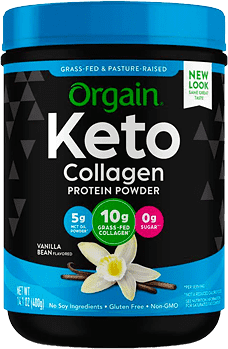
Disclosure
Your Answer
Do you have a suggestion to improve the answer? Please detail your suggestions and provide any references to information that may support your answer if available.
The content on this site has not been written, reviewed or endorsed by a medical professional. We assume no liability for the misuse of supplements and recommend you review the label of any product, as well as consulting with your health care professional.
We are a participant in the Amazon Services LLC Associates Program, an affiliate advertising program designed to provide a means for us to earn fees by linking to Amazon.com and affiliated sites.
We are a participant in the Amazon Services LLC Associates Program, an affiliate advertising program designed to provide a means for us to earn fees by linking to Amazon.com and affiliated sites.
© 2026 ProteinPowder.com
